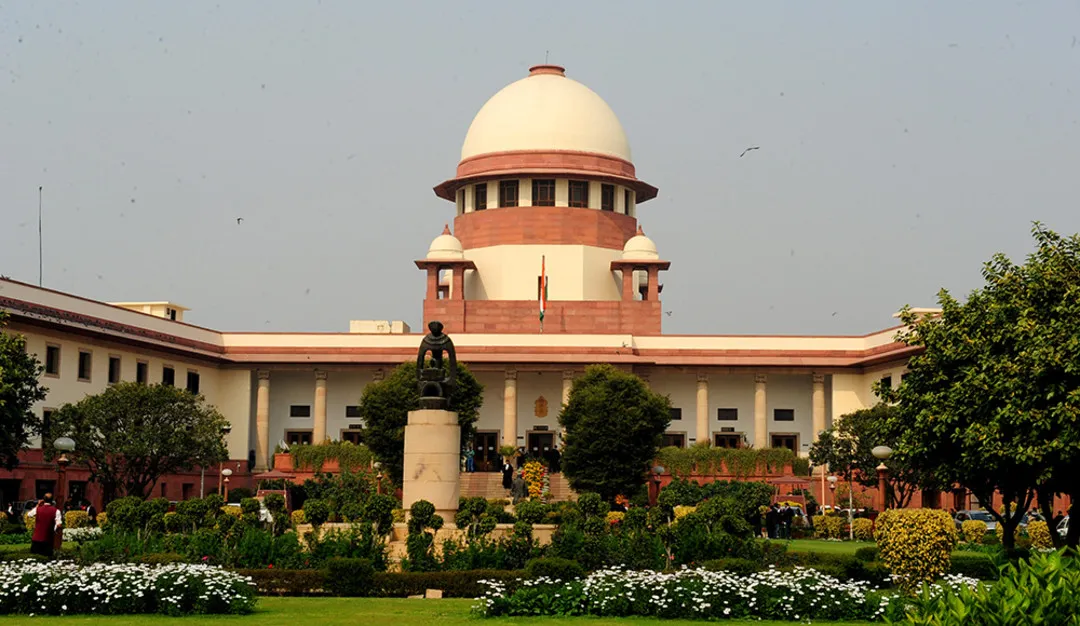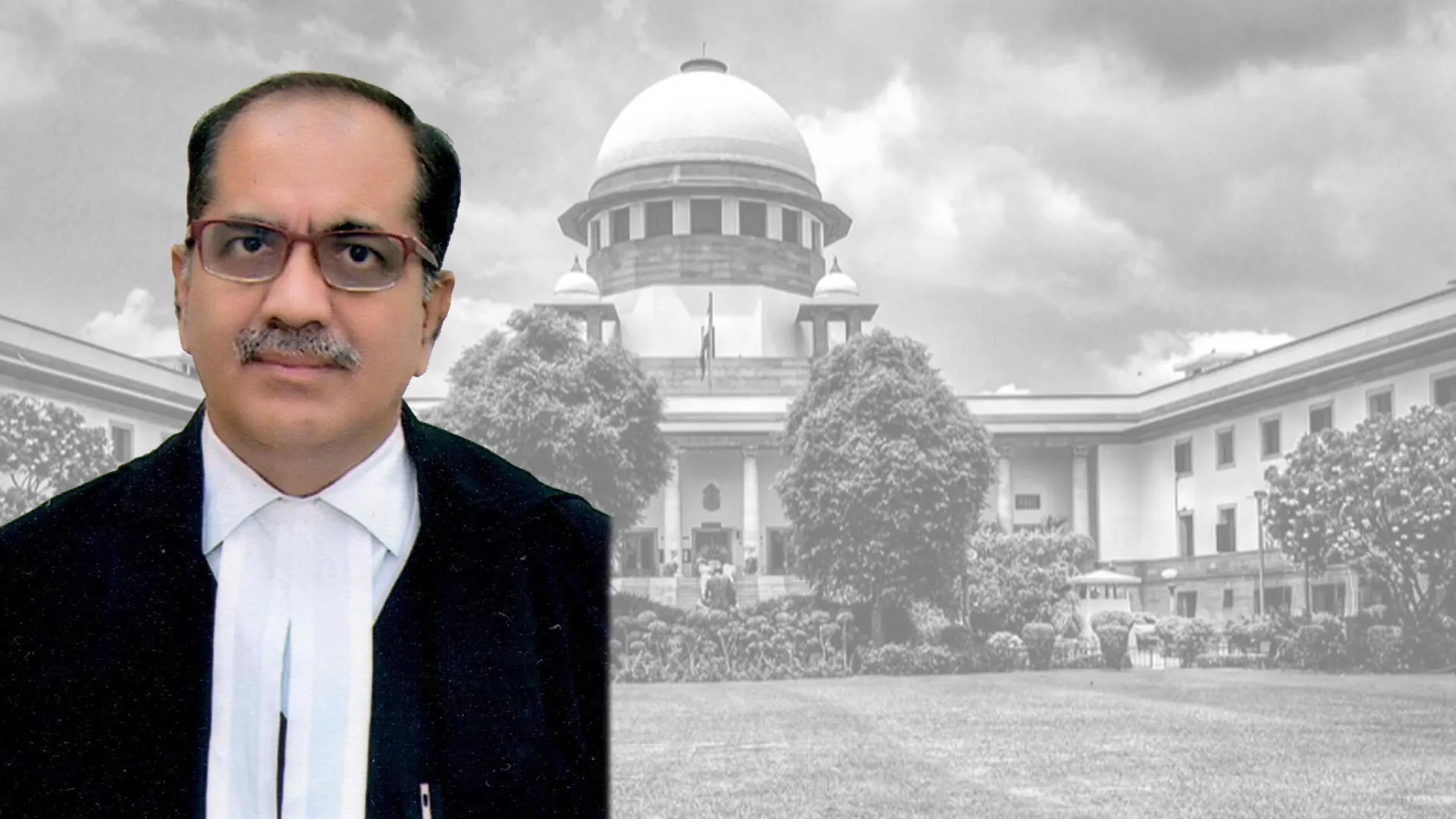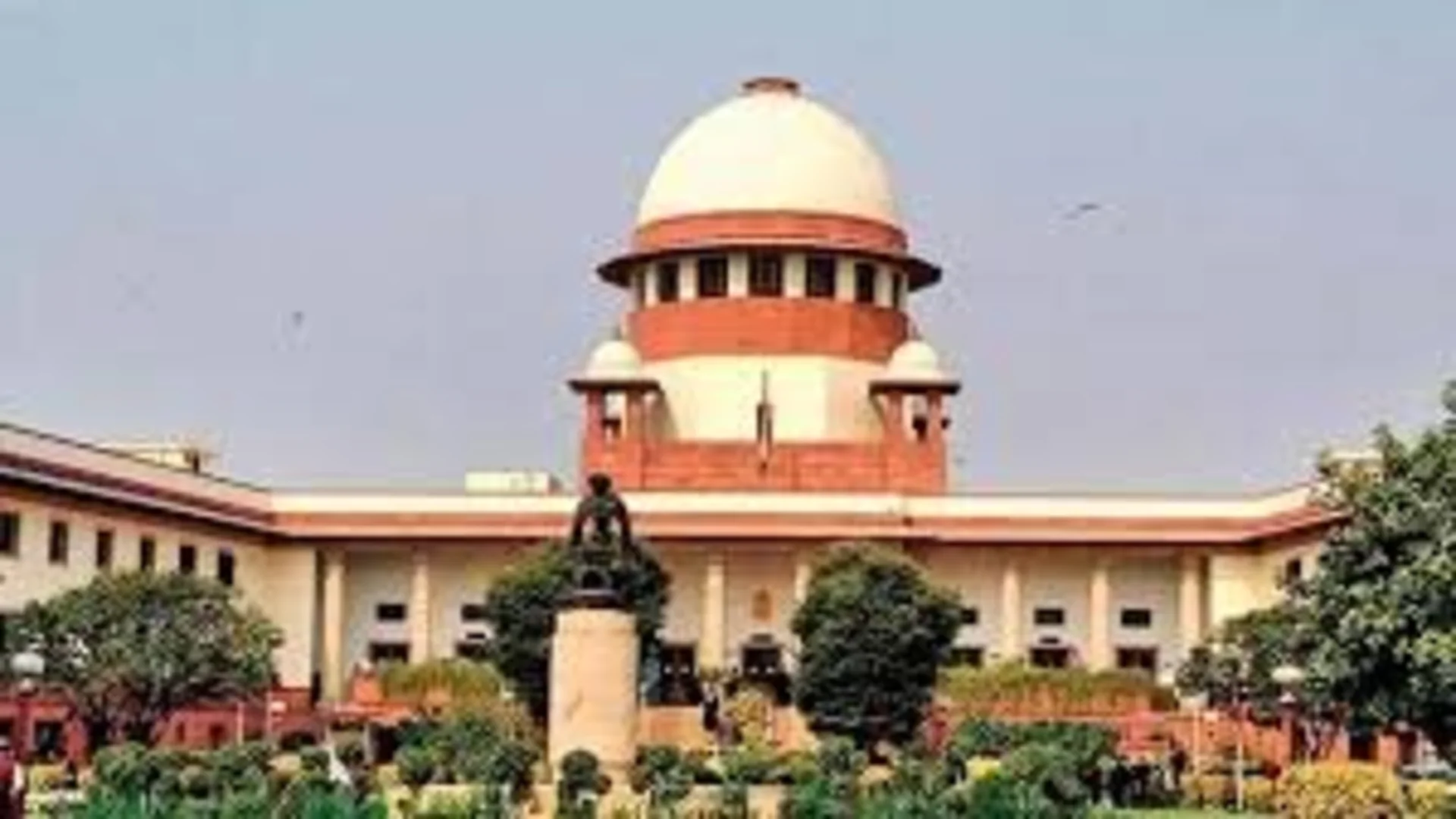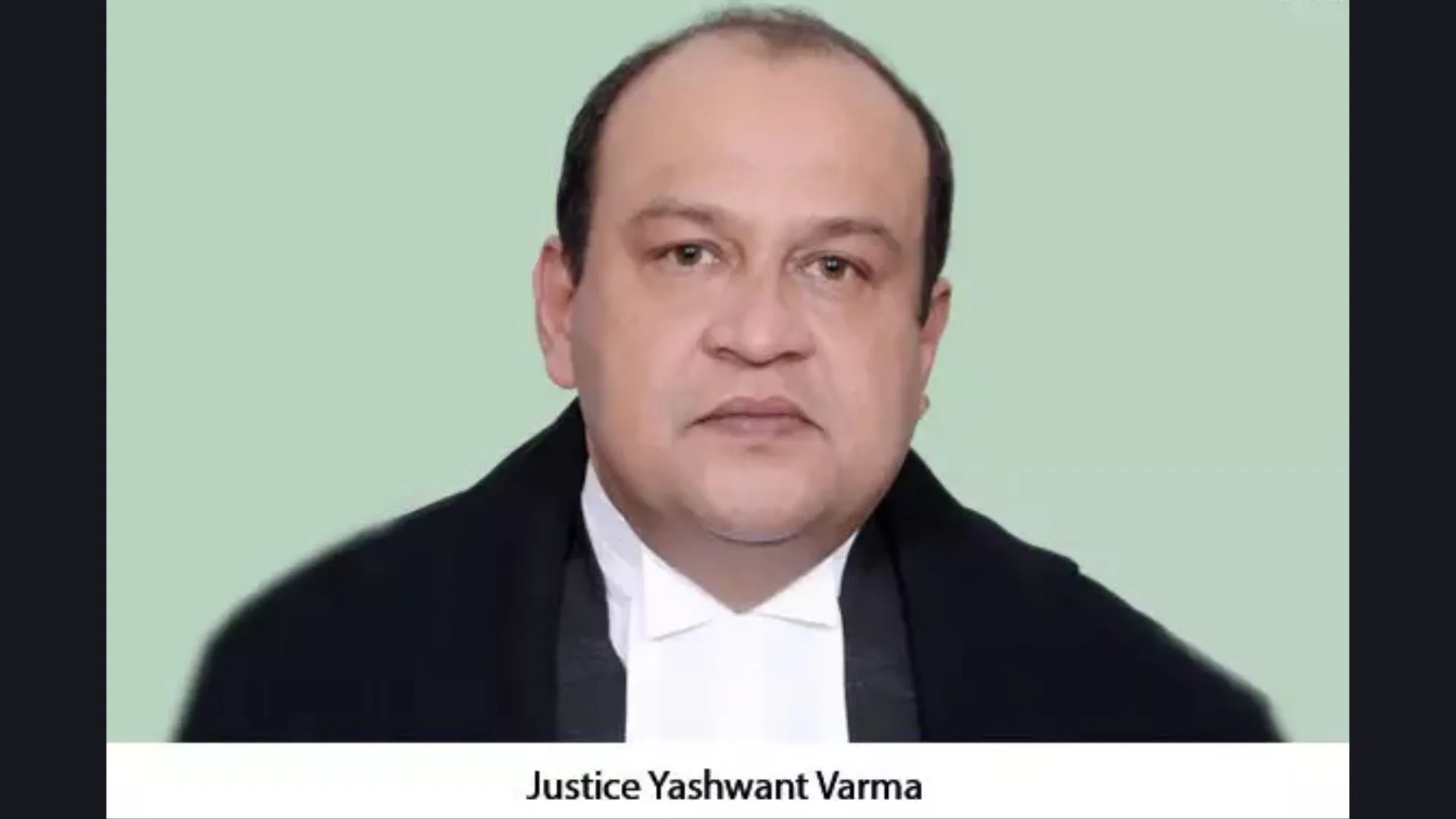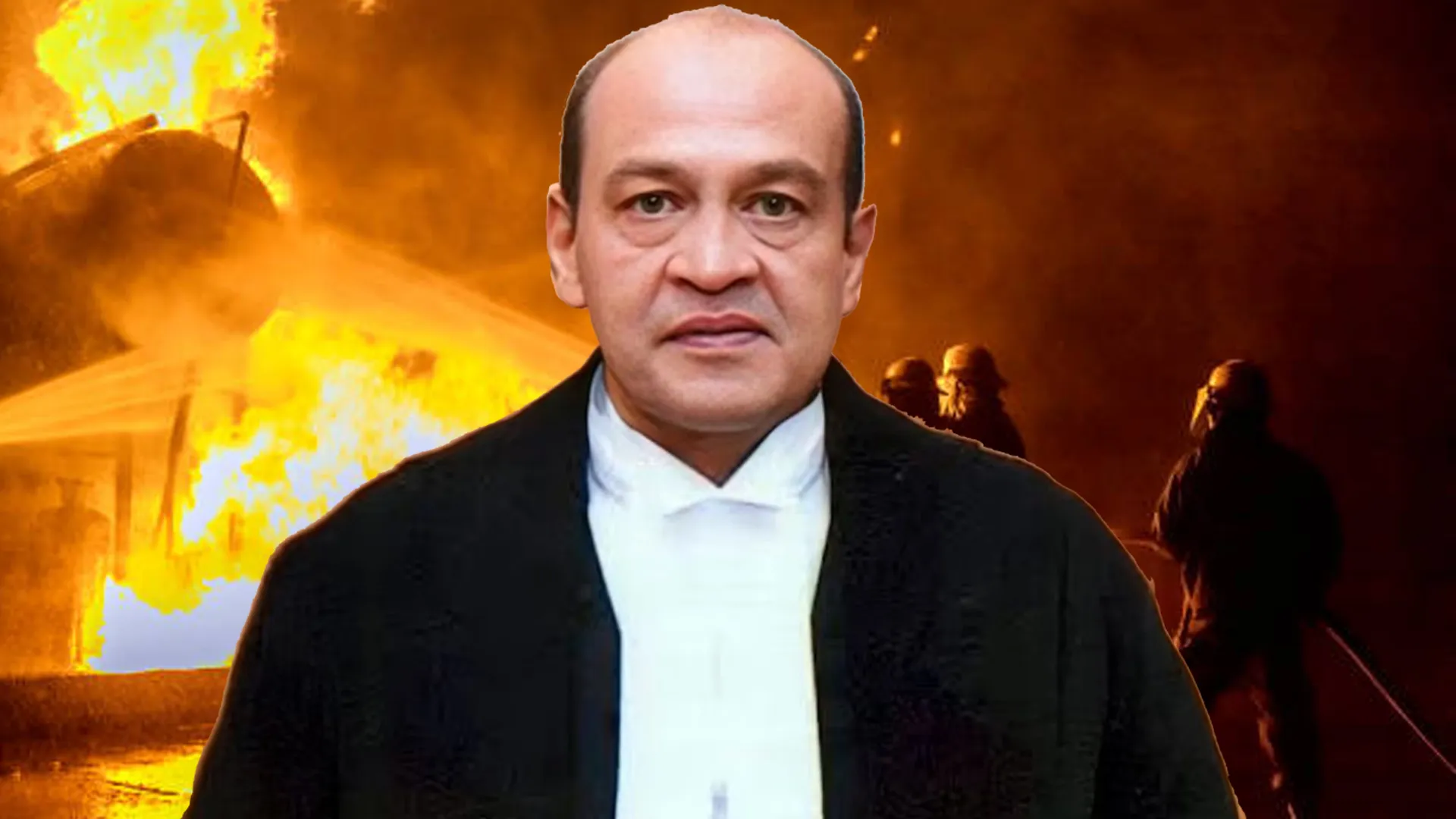At a time when absolute devotion, integrity and honesty are really becoming a rare virtue, it would be most pertinent to note that the Supreme Court in a latest, landmark, laudable, learned and lambasting judgment titled Deputy General Manager (Appellate Authority) and others vs Ajai Kumar Srivastava in Civil Appeal No(s). of 2021 (Arising out of SLP(C) No(s). 3206732068 of 2018) has minced absolutely no words to observe unequivocally that in banking business absolute devotion, integrity and honesty is a sine qua non for every bank employee. This was held so while upholding the dismissal of bank employee named Ajai Kumar Srivastava. It is now increasingly becoming clear that the top court is taking strongest exception to corruption of any kind and especially in case of bank employees as we see in this case also.
To start with, this noteworthy judgment which is authored by Justice Ajay Rastogi for himself, Justice L Nageswara Rao and Justice Hemant Gupta after granting leave in para 1 then sets the ball rolling in para 2 by observing that, “Dissatisfied with the judgment and order dated 13th September, 2018 passed by the Division Bench of the High Court of Allahabad, the instant appeals have been preferred at the instance of the appellant Bank.”
While elaborating on the facts of the case, the Bench then points out in para 3 that, “Brief facts of the case which are relevant for the purpose are that the appellant is a statutory body incorporated and constituted under the State Bank of India Act, 1955. The respondent joined service as a Cashier/Clerk in Mumfordganj Branch Allahabad on 07th December, 1981. While on duty, a misconduct was committed by him for which he was placed under suspension in the first place by order dated 14th August, 1995 and later the chargesheet dated 11th April, 1996 was served upon him detailing seven charges of misappropriation of funds which he had committed in discharge of his duties as an employee of the Bank.”
Be it noted, para 4 then states that, “It may be relevant to note that for the selfsame misappropriation of bank’s money by affording fake credits in his various accounts maintained at the Branch where he was posted, a criminal case was also instituted against him for offences under Sections 420, 467, 468, 471 IPC read with Section 120B IPC and Section 13(2) read with Section 13(1)(d) of Prevention of Corruption Act, 1988.”
To put things in perspective, the Bench then puts forth in para 5 that, “After the chargesheet dated 11th April, 1996 was served, the respondent delinquent submitted his reply dated 08th May, 1996 denying all the charges. The enquiry officer was thereafter appointed by the competent authority to hold enquiry in terms of Bipartite Settlement applicable for award staff of Nationalized Bank. The respondent had participated in the disciplinary enquiry and the enquiry officer after holding enquiry in accordance with the procedure prescribed under the Bipartite Settlement applicable for award staff of Nationalized Bank furnished his report of enquiry dated 22nd May, 1999 to the disciplinary authority holding that Charge No. 1 was not proved, at the same time, held the Charge Nos. 2 to 7 proved against him. In his report dated 22nd May, 1999, it has been noticed by the enquiry officer that respondent delinquent stated in the course of enquiry that he neither wants to say anything about the prosecution documents nor he wants to ask any question to the presenting officer and did not produce any documentary evidence to substantiate his statement in defence regarding fictitious credits in his account which was the allegation against him for misappropriation of funds of the Bank and the fact remains that all the allegations levelled against the respondent were supported with the documentary evidence duly audited by the Bank.”
Briefly stated, let us discuss the allegations and charges against the respondent as discussed in para 6 which are reproduced hereunder without mentioning the documents produced here for the sake of brevity and they are as under: –
Allegation/Charge No. 1:
On 16.02.1994, saving bank account no. 12215 of Shri I.S. Verma (an account holder) was debited with Rs. 1,09,600/- and part amount of Rs. 89,600/- was credited to his current account No. P-51 without the consent of account holder.
The charge is not proved.
Allegation/Charge No. 2:
On 25.03.1994, Shri Srivastava entered into a conspiracy with some staff members at the Branch with a view to defraud the bank and accordingly a fake debit was raised in branch clearing general account through schedule No. 4 for Rs. 4,87,300 and this amount was first posted in saving bank account No. 7547 in favour of Shri K.C. Miglani. This amount was subsequently withdrawn in installments on 25.03.1994 and 04.04.1994 and amount of Rs. 89,150 and Rs. 10,000 were misappropriated by him through credit to his current account No. P15 on the aforesaid dates.
The Charge is proved.
Allegation/Charge No. 3:
On 22.09.1994, Shri Srivastava conspired with some staff members at the branch with a view to defraud the bank and accordingly a fake debit of Rs. 5,00,000/- was raised in branch’s saving bank a/c and out of the above an amount of Rs. 2,00,000/- was misappropriated by him through credit to his current account No. P51.
The charge is proved.
Allegation/Charge No. 4:
On 30.12.1994, Shri Srivastava entered into a conspiracy with some staff members at the branch with a view to defraud the Bank and accordingly a fake debit of Rs. 5,30,000 was raised in Branch’s current Account and out of the above amount an amount of Rs. 2,50,000.00 and Rs. 25,000/- was misappropriated by him through affording of credit to his current Account No. P51 and Saving Bank A/c No. 11068 favouring Smt. Rashmi Srivastava (his wife).
The charge is proved.
Allegation/Charge No. 5:
On 30.05.1995, Shri Srivastava fraudulently raised a fake debit of Rs. 2,30,000 in the S.B. A.C. No. 11068 fvg. Smt. Rashmi Srivastava (his wife) wherein no credit balance was available and credited to his current account No. P51 with the above amount with a view to defraud the Bank.
The charge is proved.
Allegation/Charge No. 6:
On 31.05.1995, Shri Srivastava fraudulently raised a fake debit of Rs. 3,60,000 in the S.B. A/c No. 11068 fvg. Smt. Rashmi Srivastava (his wife) wherein no credit balance was available and got its part amount of Rs. 3,00,000 credited to his current account no. P-51 with a view to defraud the Bank.
The charge is proved.
Allegation/Charge No. 7:
On 20.10.1993, Shri Srivastava borrowed Rs. 35,000.00 from Shri K.C. Miglani S.B. Account No. 7547, an account holder at the branch without the permission of the Bank.
The charge is proved.”
While elaborating on the power of judicial review by disciplinary authorities along with relevant case laws, the Bench then enunciates in para 23 that, “The power of judicial review in the matters of disciplinary inquiries, exercised by the departmental/appellate authorities discharged by constitutional Courts under Article 226 or Article 32 or Article 136 of the Constitution of India is circumscribed by limits of correcting errors of law or procedural errors leading to manifest injustice or violation of principles of natural justice and it is not akin to adjudication of the case on merits as an appellate authority which has been earlier examined by this Court in State of Tamil Nadu Vs. T.V. Venugopalan 1994 (6) SCC 302 and later in Government of T.N. and Another Vs. A. Rajapandian 1995 (1) SCC 216 and further examined by the three Judge Bench of this Court in B.C. Chaturvedi Vs. Union of India and Others 1995 (6) SCC 749 wherein it has been held as under:
“13. The disciplinary authority is the sole judge of facts. Where appeal is presented, the appellate authority has coextensive power to re-appreciate the evidence or the nature of punishment. In a disciplinary enquiry, the strict proof of legal evidence and findings on that evidence are not relevant. Adequacy of evidence or reliability of evidence cannot be permitted to be canvassed before the Court/Tribunal. In Union of India v. H.C. Goel, [(1964) 4 SCR 718] this Court held at p. 728 that if the conclusion, upon consideration of the evidence reached by the disciplinary authority, is perverse or suffers from patent error on the face of the record or based on no evidence at all, a writ of certiorari could be issued.””
As a corollary, the Bench then states in para 24 that, “It has been consistently followed in the later decision of this Court in Himachal Pradesh State Electricity Board Limited Vs. Mahesh Dahiya 2017 (1) SCC 768 and recently by the three Judge Bench of this Court in Pravin Kumar Vs. Union of India and Others (2020) 9 SCC 471.”
It is worth noting that it is then elucidated in para 25 that, “It is thus settled that the power of judicial review, of the Constitutional Courts, is an evaluation of the decision making process and not the merits of the decision itself. It is to ensure fairness in treatment and not to ensure fairness of conclusion. The Court/Tribunal may interfere in the proceedings held against the delinquent if it is, in any manner, inconsistent with the rules of natural justice or in violation of the statutory rules prescribing the mode of enquiry or where the conclusion or finding reached by the disciplinary authority if based on no evidence. If the conclusion or finding be such as no reasonable person would have ever reached or where the conclusions upon consideration of the evidence reached by the disciplinary authority is perverse or suffers from patent error on the face of record or based on no evidence at all, a writ of certiorari could be issued. To sum up, the scope of judicial review cannot be extended to the examination of correctness or reasonableness of a decision of authority as a matter of fact.”
For the sake of clarity, the Bench then states in para 26 that, “When the disciplinary enquiry is conducted for the alleged misconduct against the public servant, the Court is to examine and determine: (i) whether the enquiry was held by the competent authority; (ii) whether rules of natural justice are complied with; (iii) whether the findings or conclusions are based on some evidence and authority has power and jurisdiction to reach finding of fact or conclusion.”
Furthermore, the Bench then observes in para 27 that, “It is well settled that where the enquiry officer is not the disciplinary authority, on receiving the report of enquiry, the disciplinary authority may or may not agree with the findings recorded by the former, in case of disagreement, the disciplinary authority has to record the reasons for disagreement and after affording an opportunity of hearing to the delinquent may record his own findings if the evidence available on record be sufficient for such exercise or else to remit the case to the enquiry officer for further enquiry.”
What’s more, the Bench then concedes in para 28 that, “It is true that strict rules of evidence are not applicable to departmental enquiry proceedings. However, the only requirement of law is that the allegation against the delinquent must be established by such evidence acting upon which a reasonable person acting reasonably and with objectivity may arrive at a finding upholding the gravity of the charge against the delinquent employee. It is true that mere conjectures or surmises cannot sustain the finding of guilt even in the departmental enquiry proceedings.”
Going ahead, the Bench then states in para 29 that, “The Constitutional Court while exercising its jurisdiction of judicial review under Article 226 or Article 136 of the Constitution would not interfere with the findings of fact arrived at in the departmental enquiry proceedings except in a case of malafides or perversity, i.e., where there is no evidence to support a finding or where a finding is such that no man acting reasonably and with objectivity could have arrived at that findings and so long as there is some evidence to support the conclusion arrived at by the departmental authority, the same has to be sustained.”
More damningly, the Bench then minces no words to say plainly and pointedly in para 30 that, “In the case on hand, the chargesheet was served upon the respondent delinquent for misappropriation of public funds by affording fake credits in his various accounts maintained at the branch where he was serving (Mumfordganj Branch) during the relevant period. In all, 7 charges were levelled against him of grave misconduct which he had committed in discharge of his official duty and after affording an opportunity of hearing to the respondent delinquent and due compliance of the principles of natural justice, the enquiry officer in his report while dealing with the preliminary objections raised by the respondent delinquent specifically indicated that the details of enquiry report contained 22 pages along with documents produced by the presenting officer marked as PEX1 to PEX28 to establish the allegations/charges levelled against the respondent delinquent who neither produced any document nor witness in his defence. It was further indicated that the respondent stated in the course of enquiry that he neither wants to say anything about the prosecution document nor he wants to ask any question to the presenting officer and never requested to seek permission to defend the representative of his choice.”
More significantly, the Bench then puts forth in para 42 that, “In the case on hand, the disciplinary/appellate authority was not supposed to pass a judgment however while passing the order dated 24th July, 1999, the disciplinary authority had taken note of the record of enquiry, including self contained enquiry report dated 22nd May, 1999 and his prima facie opinion dated 29th June, 1999 which was made available to the respondent employee and after affording reasonable opportunity of hearing and meeting out the written objections raised by the delinquent, expressed its brief reasons in upholding the finding of guilt and penalty of dismissal by its order dated 24th July, 1999. That apart, the appeal preferred by the respondent delinquent was examined by the appellate authority as it reveals under para 3 (i) to (viii) in upholding the finding of guilt recorded by the enquiry officer in his report dismissing the respondent employee from service, rejected by order dated 15th November, 1999. After detailed discussion, we are unable to accept the finding recorded by the High Court under its impugned judgment setting aside the orders passed by the disciplinary/appellate authority which deserves to be set aside.
Most significantly and most remarkably, the Bench then waxes eloquent to remark and hold in para 43 that, “Before we conclude, we need to emphasize that in banking business absolute devotion, integrity and honesty is a sine qua non for every bank employee. It requires the employee to maintain good conduct and discipline and he deals with money of the depositors and the customers and if it is not observed, the confidence of the public/depositors would be impaired. It is for this additional reason, we are of the opinion that the High Court has committed an apparent error in setting aside the order of dismissal of the respondent dated 24th July, 1999 confirmed in departmental appeal by order dated 15th November, 1999.”
Finally, it is then held in para 44 that, “Consequently, the appeals deserve to succeed and are accordingly allowed and the judgment of the High Court impugned dated 13th September, 2018 is hereby set aside.
No costs.”
To conclude, the bottom-line of this commendable, composed and cogent judgment is stated explicitly, elegantly, effectively and eloquently in para 43 which has been discussed above in detail. It is certainly the bounden duty of all the bank employees to always abide by what the three-Judge Bench of the Apex Court has laid down so that the confidence and faith of the public and depositors always remain intact in the bank employees which is the crying need of the hour also! All the High Courts and the lower courts must always pay heed to what the top court has laid down in this leading case and ensure that they also comply with the same!


